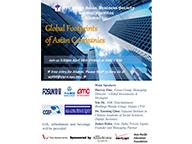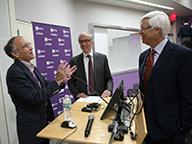Faculty News
—
In an op-ed, NYU Global Research Prof. Ian Bremmer discusses Japan Prime Minister Shinzo Abe's visit to the US
—

Excerpt from TIME -- "In Japan, Abe has the political capital to apologize for historical aggression, but chooses not to. Japan is too important to Obama’s 'pivot to Asia' strategy to risk estranging its leaders, especially with the critical Trans-Pacific Partnership trade deal on the horizon. If the pivot to Asia is to succeed and Japan’s new foreign policy ambitions are to be realized, America’s democratic allies in Asia need to find a way to move forward. Abe is talking in the U.S., but what matters is whether Asia is listening."
Faculty News
—

Excerpt from TIME -- "In Japan, Abe has the political capital to apologize for historical aggression, but chooses not to. Japan is too important to Obama’s 'pivot to Asia' strategy to risk estranging its leaders, especially with the critical Trans-Pacific Partnership trade deal on the horizon. If the pivot to Asia is to succeed and Japan’s new foreign policy ambitions are to be realized, America’s democratic allies in Asia need to find a way to move forward. Abe is talking in the U.S., but what matters is whether Asia is listening."



















